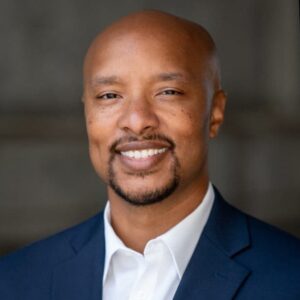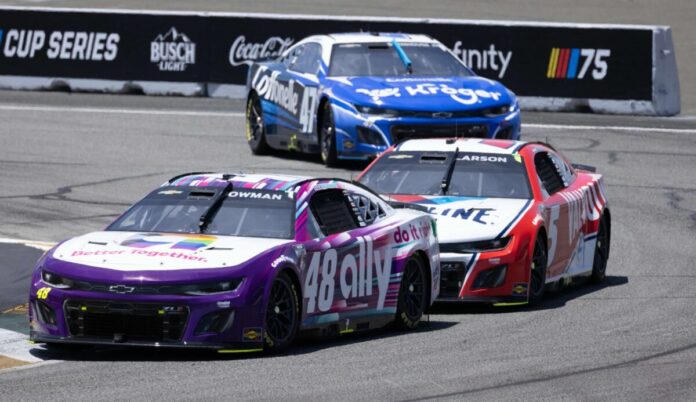When John Ferguson joined NASCAR as chief HR officer two years ago, it was shortly after the organization had acquired International Speedway Corp., which owned and operated NASCAR’s tracks.
He quickly noticed a pattern among employees from the formerly separate companies.
“Everyone would introduce themselves as, ‘Hey, I’m John, legacy NASCAR’ or ‘I’m Karen, legacy ISC,’ ” Ferguson said during Culture Amp’s recent Culture First Global 2024. “I thought, ‘OK, these people have some belonging badge they’re still wedded to.’ ”
Ferguson said the need for creating a “one NASCAR” culture was clear.
“We had two rich legacies here, and that doesn’t mean one is better than the other. We had a clean sheet of paper in front of us and a unique opportunity to write on it,” Ferguson said.
Building that culture among NASCAR’s more than 2,000 employees required leadership first to understand employee engagement. Instead of reviewing employee engagement data from before the merger, the HR team launched a new, unified survey using the tools available through Culture Amp.
The 2022 survey garnered 89% participation; a year later, that figure stood at 96%.
How did NASCAR’s HR team do it?
4 strategies to supercharge employee engagement survey participation
Ferguson said that sample size can often be an issue in getting an accurate read on employee engagement. So, his team strategized to start strong.
“Right out of the gate, we wanted to ensure a high participation rate,” he said. “Sometimes, you’ve gotta have fun, get out in front of your people and make yourself silly.”
1. Make your message loud and clear.
One way to be silly and get employees excited about the engagement survey? “Get yourself a karaoke mic,” Ferguson advised.

Ferguson and other leaders walked through NASCAR offices with a mic, encouraging employees to participate in the survey.
“It grabs people’s attention,” he says. “They can feel my excitement, my team’s, senior leadership’s.”
2. Connect creatively.
Similarly eye-catching was a “guerilla marketing” technique: parading a giant sign that read, “If you’re reading this, you’ve taken the survey.” Employees “got a good chuckle” out of the strategy—Ferguson joked leaders could ramp up the humor and stand outside the office window with such a sign—but they also appreciated the “out-of-the-box” thinking and the facetime with leaders.
“You have to communicate to people [about an employee engagement survey] through different channels, different modes,” he said. “Everyone responds differently and can get over-indexed on emails, Teams, Slack.”
3. Keep the reminders fresh.
After the first successful year in 2022, the HR team was driven to elevate the participation rate even higher—and so placed three 15-minute calendar requests, supported by schedule reminders sent out through Culture Amp, on all employees’ schedules during the two-week window the survey was open. Each time the requests were deployed, Ferguson said, participation in the survey jumped.
4. Inspire friendly competition.
Competition among leaders has also been key. In 2022, senior leaders were awarded small prizes if they got their teams to 100% participation and by the second year of the survey, they were granted real-time visibility into participation numbers to drive friendly competition.
“Talk about an increase. That’s when we saw a huge uptick,” Ferguson said, noting the transparency motivated leaders to take more ownership of survey involvement among their teams.
Ferguson said that while creativity has been key to driving up survey participation, he advises HR leaders to craft a communication strategy that conveys to employees how the survey supports the overarching business strategy. For NASCAR, that strategy centered on creating a more unified culture.
“If we don’t have the ability to hear your voice about your experience, that limits our ability to create and enhance the people-first culture we want to have,” he said about the campaign’s message. “Everyone’s voice can be different, but what we want to do is hear your voice.”



